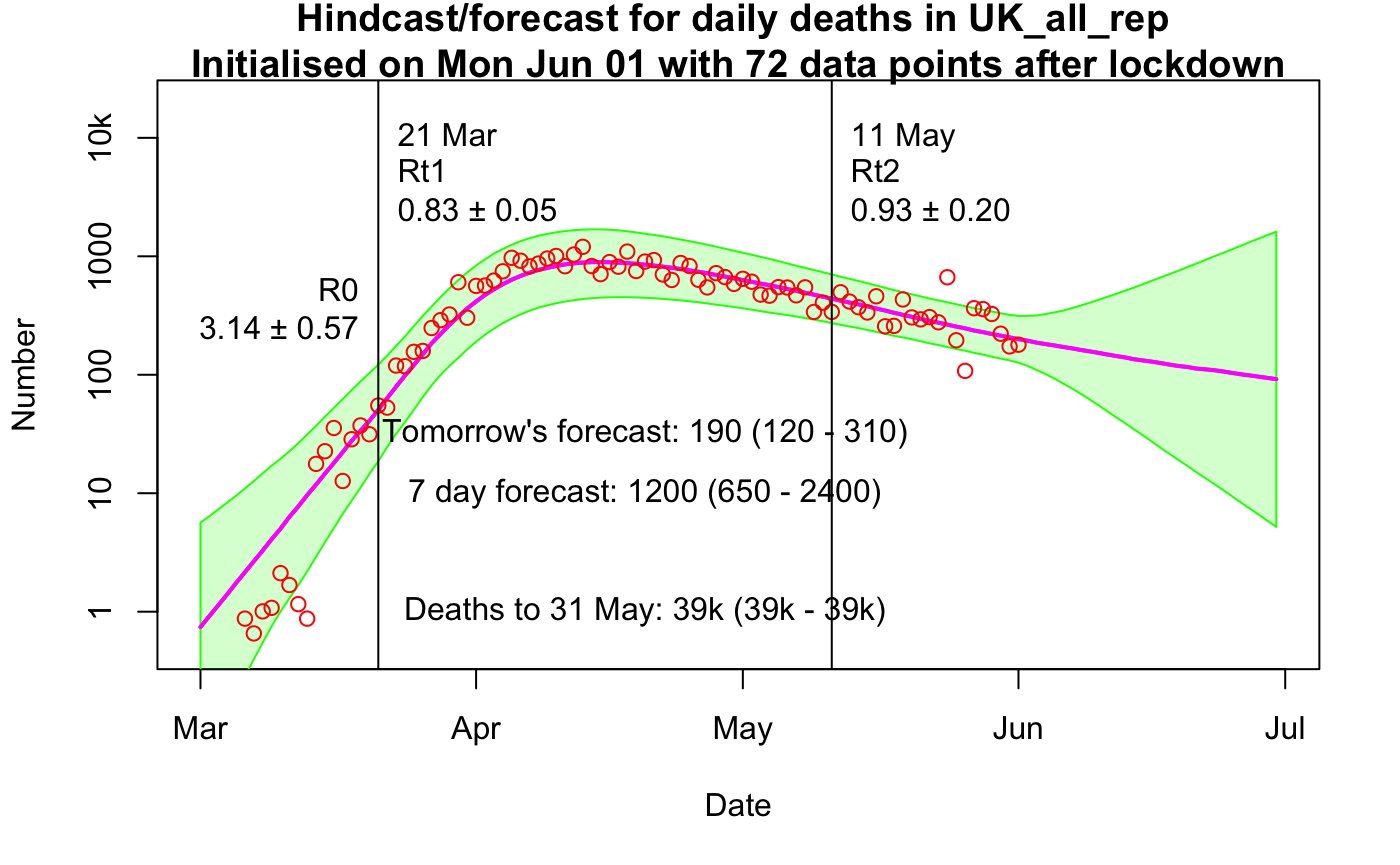 May has become the sunniest calendar month on record in the UK says the UKMO
May has become the sunniest calendar month on record in the UK says the UKMO, and it feels like it. I spend my work days in a chair looking out onto the garden
1,
watching my cat stretch in the heat,
watching the plants grow, watering the plants, and wishing it would rain a little bit.
And in the brief intervals between work, various blogging items emerge. I largely endorse JA's
The utterly vacuous, self-destructive, hopelessly incompetent nature of our government is beyond my ability to put into words, and so I haven't been saying much, as it does all seem such a train wreck that it is hard to see how any sane suggestions for improvement could have any effect.
My inlined pic is
JA's daily.
Testing
It feels like we are in a fog, unable to see "the enemy", and the obvious answer is ubiquitous testing. Unfortunately, the govt has so thoroughly fucked up the testing regime, it is hard to see where to go.
Even the UK Stats Org is now telling the govt they are clueless. The problem, apart from basic sanity, is windbaggery and lies: the govt unwisely promised N tests by some random date, and in order to pretend to hit that target were obliged to twist the results into lies. But now they can't untwist, so no-one knows how many tests are being done. That in a sense is no longer very important, because I don't think anyone takes the govt lies seriously any more, but they still can't untwist, and so we can't tell, from the stats, tests-performed against tests-mailed-out; actual individual tests against number of people tested, if they're tested multiple times; and so on.
This carries over into the stupid 14-day quarantine for international travellers. The obvious alternative is just to test people on arrival.
Incidentally, whilst some of the incompetence and lies are clearly govt (see stupid target, above) I'm rather less convinced that the govt-as-in-the-party-in-office, rather than the civil service and associated machinery, is to blame for everything.
Meester Cummings
No post about Covid would be complete without a mention of Dom. And no post about Dom would be complete without a mention of
his role in getting the lockdown imposed as early as it was:
Boris Johnson’s most powerful political aide pressed the U.K.’s independent scientific advisers to recommend lockdown measures in an effort to stop the spread of coronavirus, according to people familiar with the matter... According to two people involved, Cummings played far more than a bystander’s role at a crucial SAGE meeting on March 18, as the panel discussed social distancing options to tackle the Covid-19 outbreak. Weirdly, no-one wants to talk about that.
The other Cummings thought: AFAIK, his little jaunt did no harm of itself; the harm came from Joe Public becoming aware of it, and thus going "sod it! If he won't, I won't", and going outside mixing with fellow plebs and catching horrible diseases and dying. Now obviously the hypocrisy is bad - considered as a stain on his character - and the blog editing is bad - considered as a blow to his techno-competence - but on that reading, the people responsible for the extra deaths are the press, not him. During wartime, the press get censored to prevent bad news leading to despondency; I'm not sure I agree with that even in wartime, and this isn't as bad as wartime, and I would oppose govts attempts to censor this episode had they tried; but there is a case for press self-censorship,
if the aim is to avoid people dying. Of course, that might not be your aim. Your aim might be bashing the govt; either for personal satisfaction or for the long-term good: a bashed govt might fall and lead to a better govt. Or perhaps the virtue of free reporting is so great that it is worth a few deaths
2. And these are all trade-offs that can be considered. But pretending that the press had no choice to make; that once the info was in their hands they were obliged to publish and thus had no moral choice; it just lying to themselves.
FWIW, though
the Graun insists the Tories poll lead has collapsed, their pix show the approval-of-covid numbers have hardly shifted, though BoJos rating has fallen.
Update: Evil Mastermind? JA wondered if I was
a fan of the Dim and Dom show, which to my mind is an odd thing to wonder, since I've repeatedly
called Bojo a Tosser. As to Cummings, I said
As for Cummings, you should fear him; but with luck Boris will enough to sack him a while ago. I've linked approvingly to some of his posts, in particular
some discussion of the willingness to fail conventionally - which insight I owe to
Harry Potter and the Methods of Rationality, which you should definitley read. I found
JA's attempted takedown of Dom less than convincing, although to be fair it was more an expression of his opinion than anything intended to convince.
But enough equivocation, what do I actually think of him? As to his role in the current govt, I think there is very little public / hard evidence; he is an advisor, rarely speaks, and if there is visible documentation of what he says, it is thin / unreported / I haven't been diligent enough to find it. I judge the entire-govt performance in Covid to be poor, but don't know whether to blame him for that or credit him with making it better than it otherwise would be (see the lockdown-earlier link). In terms of performance effectiveness, I mainly judge him for his success in winning the Brexit referendum; that didn't have the result I wanted; but looking at his effectiveness (note for simplicity I'm giving him most of the points) I think that indicates that some of his ideas - as expounded on his blog, and relevant to the entire-govts poor performance - are sound, even if I'm somewhat baffled why someone clearly intelligent would choose to head in the direction he has.
Uupdate: lying in politics. JA's riposte is
Apart from a few good slogans and the strategy of lying bigly, what has he actually done? which of course deserves
the traditional reply. However, this touches on something I wanted to say, so I will: many people blame him (and Leave in general) for lying through their teeth
5. I don't. Not because I like lying: I don't. I think people should tell the truth, and strive to do so in my life
4. However, in politics lying is widespread if not universal. Why? Are pols especially evil? No
6: they just live in a system where lying is rewarded and telling the truth isn't. As usual, I blame Joe Public, who fail to punish lying pols. As to the specific case of £350M/week: yes this was probably a lie (TBH I didn't greatly care so never bothered to check the details) but it was widely called out as a lie at the time (indeed, I heard about it far more from people calling it a lie than from people saying it). So anyone who cared had the truth available. In fact this is analogous to information about GW: the truth is there, for anyone how cares to see it. Anyone who is being lied to, and is believing the lies, is culpable, not the liars: they are simply being fed what they want to hear. I doubt many took it seriously: it worked not because it was true or was believed, but because it indicated a direction of travel that resonated.
How are we doing?
Not well, obviously. But not outstandingly badly (please don't interpret that as a defence of the govt). Currently
worldometers.info/coronavirus has us at #5 in the world in deaths per population; or ignoring tiddlers, behind Belgium and (to the level of accuracy I suspect this data has) tied with Spain and Italy. Mind you... Spain and Italy... not what comes to mind when you think of paragons of competent govt we'd like to compare ourselves to.
Is science being set up to take the blame?
Asks Ross Anderson at
Light Blue Touchpaper. But SAGE comes out pretty badly from his reading of the minutes (the usual bureaucratic problems of committees: not dealing with the whole problem, continual refusal to admit mistakes, and the whole wearily familiar list; see my "I don't just blame the govt", above). I really ought to try a similar reading for myself some time.
Personally
The bumps are still off, but sculling is back, and I'll probably go out tomorrow. The krauts are back in eights, lucky them. Work isn't looking to get us back until September, in general, which makes sense as most of us are productive at home; some of us more so. I'm starting to eye up the Alps, perhaps in August.
Mark Zuckerberg criticised by civil rights leaders over Donald Trump Facebook post
Not strictly Covid, but relates to the freedom-of-expression begun above.
The Graun is sad because the Mango Mussolini gets to say bad things on fb. I'm sad too, because having a populace that votes for such a POTUS is distressing
3. But I'm also sad because having "civil rights leaders" (the heads of the Leadership Conference on Civil and Human Rights, the NAACP Legal Defense and Educational Fund, and Color of Change) say “
We are disappointed and stunned by Mark’s incomprehensible explanations for allowing the Trump posts to remain up” indicates a level of stupidity and failure to think that you'd hope not to see in those nominally leading opposition to TMM. Yes, it is entirely possible for people of good faith to argue that fb's decision was wrong - FWIW, I think it was right - but to argue that it was "incomprehensible" is either stupid, ignorant or windbaggery. And the defense is free speech, of course. We don't want it to be restricted without good reason. Note the absence of contradiction to the Dom stuff above, since that was about self-control, not imposed control.
Update: some good news
UK electricity coal free for first month ever: Coronavirus slump and sunniest spring on record send green energy soaring.
Adam Smith
The statesman who should attempt to direct private people in what manner they ought to employ their capitals would not only load himself with a most unnecessary attention, but assume an authority which could safely be trusted, not only to no single person, but to no council or senate whatever, and which would nowhere be so dangerous as in the hands of a man who had folly and presumption enough to fancy himself fit to exercise it.
Refs
*
A "Hodgepodge" of State-Based COVID-19 Rules May be Just What the Doctor Ordered by Richard B. McKenzie at Econlib.
*
Making sense of nonsensical Covid-19 strategy - FT Alphaville. It fails (but it is reading the minutes).
*
Supercentenarians and the oldest-old are concentrated into regions with no birth certificates and short lifespans and
Supercentenarian and remarkable age records exhibit patterns indicative of clerical errors and pension fraud.
*
The emergence of modern astronomy – a complex mosaic: Part XXXVII
*
Doubling times and the curious case of the dog that didn't bark - JEB
*
The Two Kinds of Moderate - Paul Graham - December 2019
*
BUSH DID NORTH DAKOTA - the 33% effect in polls, and lizardmen - SlateStarCodex
* The constitution:
Dominic Cummings and the unchained ministers: The prime minister’s adviser is gone. His project to unleash executive power goes on. The Economist, Nov 2020, after DC's departure.
Notes
1. When it isn't so hot and sunny that I have to twitch the curtain across. Adaption!
2. How many deaths? I have no idea. If I took seriously the headlines trumpeting the complete collapse of the govts moral authority in imposing lockdown, lots. But in practice I rather doubt that. The sot of people who used this to give themselves license had no discipline anyway.
3. Thought for the day: a key element of democracy - well, of a functioning system of govt - is allowing people to defect. The absence of this is obvious in dictatorships, like Syria or Venezuela. But it is also applies in strong party system states, like the USA or the UK. But no, I don't think the USA is heading for dictatorship.
4. Other than when replying to axe-murderers seeking their victim's location, or answering despotic regimes, or when your Aunt Petunia asks if you like the sweater she knitted you; there's general agreement that lying then is acceptable; but except when it's acceptable to lie, you should tell the truth.
5. Evil DC, that is; not nice JA.





 In
In 